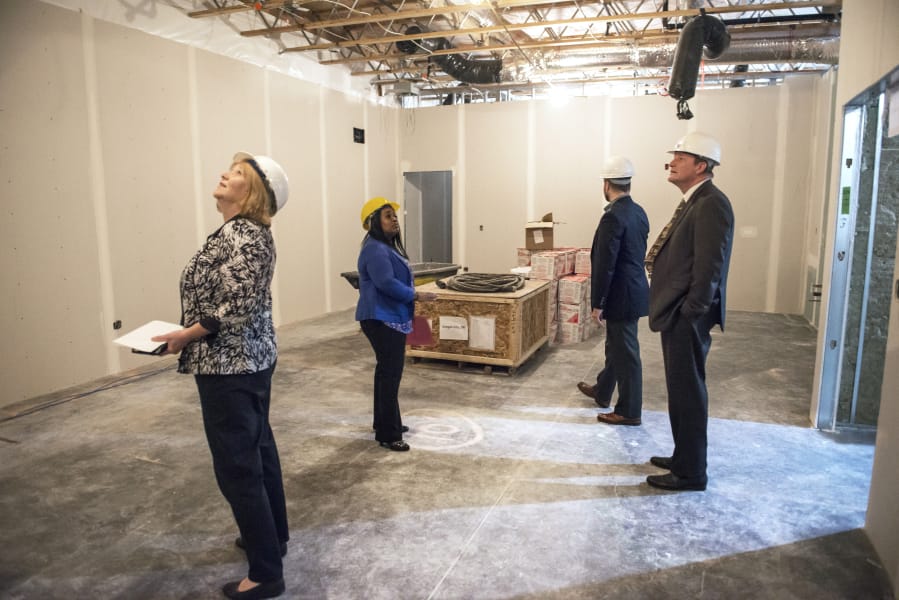“It’s an entirely different experience being here,” said Executive Director Eric Erickson.
On the first floor of the new building is the adult day center that’s open from about 8 a.m. to 5 p.m. on weekdays providing music, art and restorative exercise therapy. Caregivers can drop off their loved ones to get respite. Although the center primarily serves seniors, it’s open to anyone 18 and older. When Innovative Services NW closed its adult day center, CDM absorbed many of its clients who are younger and have disabilities.
“It’s just such a blessing to have this new place,” Erickson said.
CDM has about 750 clients and aims to grow that to about 1,000. In the future, the organization would like to develop memory care programming to better serve clients with dementia. Also, in the past they’ve tried to provide services that state and federal programs can’t, such as paying for moving costs for indigent clients or covering repairs that would keep clients in their homes. Erickson aims to focus fundraising on those services now that the capital campaign for the new building is over.
Clark County Adventist Community Services
Monday was the first day that Clark County Adventist Community Services, one of the busiest local food pantries, was open to clients at its new facility in central Vancouver. The pantry moved from 3200 St. Johns Blvd. to 3114 E. Fourth Plain Blvd. and serves about 800 people every month.
Executive Director Eleanor Hetke said they still need to finish moving in and setting up the place, but that the new digs are “a dream come true.” The new pantry has more space for volunteers to sort donations and refill shelves without bumping into clients. There’s a covered area where people can wait outside out of the elements, parking lots for clients and volunteers, a classroom, offices and a community garden wrapping around the building.




